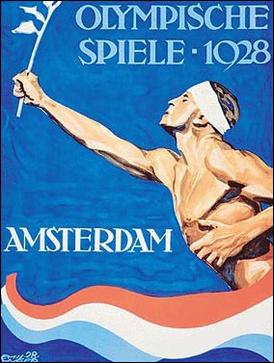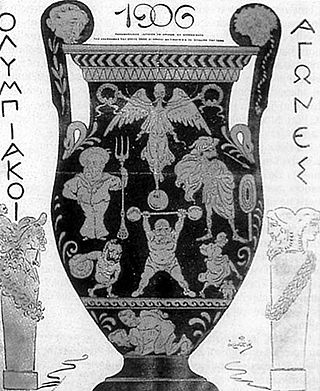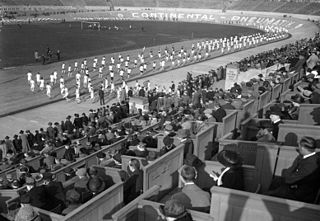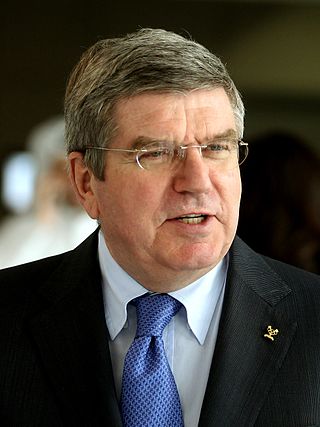
The Summer Olympic Games, also known as the Games of the Olympiad, and often referred to as the Summer Olympics, is a major international multi-sport event normally held once every four years on leap years. The inaugural Games took place in 1896 in Athens, Greece, and the most recent Games were held in 2021 in Tokyo, Japan. The International Olympic Committee (IOC) is responsible for organising the Games and for overseeing the host city's preparations. The tradition of awarding medals began in 1904; in each Olympic event, gold medals are awarded for first place, silver medals for second place, and bronze medals for third place.
The Winter Olympic Games were created out of the success of the Summer Olympic Games, which are regarded as the largest and most prestigious multi-sport international event in the world.

The Winter Olympic Games is a major international multi-sport event held once every four years for sports practiced on snow and ice. The first Winter Olympic Games, the 1924 Winter Olympics, were held in Chamonix, France. The modern Olympic Games were inspired by the ancient Olympic Games, which were held in Olympia, Greece, from 776 BC to 394 AD. The Baron Pierre de Coubertin of France founded the International Olympic Committee (IOC) 1,500 years later in 1894, leading to the first modern Summer Olympic Games in Athens, Greece in 1896. The IOC is the governing body of the Olympic Movement, with the Olympic Charter defining its structure and authority. The original five Winter Olympic Sports were bobsleigh, curling, ice hockey, Nordic skiing, and skating. The Games were held every four years from 1924 to 1936, interrupted in 1940 and 1944 by World War II, and resumed in 1948. Until 1992, the Summer Olympic Games and the Winter Olympic Games were held in the same year. A decision to change this was made in 1986, when during the 91st International Olympic Committee session, IOC members decided to alternate the Summer Olympic Games and the Winter Olympic Games on separate four-year cycles in even-numbered years. Also, at that same congress it was decided that 1992 Winter Olympics would be the last to be held in the same year as the Summer Games and that to change the rotation, the edition that would be held in 1996 would be brought forward by two years, being scheduled to 1994. After this edition, the next one was to be held in 1998 when the 4-year Olympic Cycle resumed.

The 1896 Summer Olympics, officially known as the Games of the I Olympiad and commonly known as Athens 1896, was the first international Olympic Games held in modern history. Organised by the International Olympic Committee (IOC), which had been created by French aristocrat Pierre de Coubertin, it was held in Athens, Greece, from 6 to 15 April 1896.

The 1928 Summer Olympics, officially known as the Games of the IX Olympiad and commonly known as Amsterdam 1928, was an international multi-sport event that was celebrated from 28 July to 12 August 1928 in Amsterdam, Netherlands. The city of Amsterdam had previously bid for the 1920 and 1924 Olympic Games, but was obliged to give way to war-torn Antwerp in Belgium for the 1920 Games and Pierre de Coubertin's Paris for the 1924 Games.

The 1920 Summer Olympics, officially known as the Games of the VII Olympiad and commonly known as Antwerp 1920, were an international multi-sport event held in 1920 in Antwerp, Belgium.

The 1906 Intercalated Games or 1906 Olympic Games was an international multi-sport event that was celebrated in Athens, Greece. They were at the time considered to be Olympic Games and were referred to as the "Second International Olympic Games in Athens" by the International Olympic Committee. However, the medals that were distributed to the participants during these games are not officially recognised by the Olympic Committee and are not displayed with the collection of Olympic medals at the Olympic Museum in Lausanne, Switzerland.

The 1940 Summer Olympics, officially known as the Games of the XII Olympiad, was a planned international multi-sport event scheduled to have been held from September 21 to October 6, 1940, in Tokyo City, Empire of Japan, and later rescheduled for July 20 to August 4, 1940, in Helsinki, Finland following the outbreak of the Second Sino-Japanese War in 1937. They were ultimately canceled because of World War II alongside the 1940 Winter Olympics in Sapporo, Empire of Japan, and were the third games to be canceled due to war.
The 1944 Summer Olympics, officially known as the Games of the XIII Olympiad, was a planned international multi-sport event scheduled to have been held from July to August 1944 in London, England, United Kingdom. The games were cancelled because of World War II alongside the 1944 Winter Olympics in Cortina d'Ampezzo, Italy, and were the fifth games to be cancelled due to war. However, unofficial celebrations went ahead anyway in Switzerland as well as by Polish prisoners of war held in Nazi-occupied Poland.

The 1912 Summer Olympics, officially known as the Games of the V Olympiad and commonly known as Stockholm 1912, were an international multi-sport event held in Stockholm, Sweden, between 5 May and 22 July 1912.

Carl Diem was a German sports administrator, and as Secretary General of the Organizing Committee of the Berlin Olympic Games, the chief organizer of the 1936 Olympic Summer Games.

The International Olympic Committee (IOC) uses icons, flags, and symbols to elevate the Olympic Games. These symbols include those commonly used during Olympic competition—such as the flame, fanfare and theme—as well as those used throughout the years, such as the Olympic flag.
The 1940 Winter Olympics, officially known as the V Olympic Winter Games and as Sapporo 1940 (札幌1940), was a planned international multi-sport event scheduled to have been held from 3 to 12 February 1940 in Sapporo, Empire of Japan. They were ultimately cancelled because of World War II alongside the 1940 Summer Olympics in Tokyo City, Empire of Japan, and were the third games to be canceled due to war.

National Olympic Committees that wish to host an Olympic Games select cities within their territories to put forth bids for the Olympic Games. The staging of the Paralympic Games is automatically included in the bid. Since the creation of the International Olympic Committee (IOC) in 1894, which successfully appropriated the name of the Ancient Greek Olympics to create a modern sporting event, interested cities have rivaled for selection as host of the Summer or Winter Olympic Games. 51 different cities have been chosen to host the modern Olympics: three in Eastern Europe, five in East Asia, one in South America, three in Oceania, nine in North America and all the others in Western Europe. No Central American, African, Central Asian, Middle Eastern, South Asian, or Southeast Asian city has ever been chosen to host an Olympics.

Athletes from Germany (GER) have appeared in 27 of the 30 Summer Olympic Games, having competed in all Games except those of 1920, 1924 and 1948, when they were not permitted to do so. Germany has hosted the Summer Olympic Games twice; the 1936 Games in Berlin, and the 1972 Games in Munich.
Art competitions formed part of the modern Olympic Games during its early years, from 1912 to 1948. The competitions were part of the original intention of the Olympic Movement's founder, Pierre de Frédy, Baron de Coubertin. Medals were awarded for works of art inspired by sport, divided into five categories: architecture, literature, music, painting, and sculpture.

Deutsches Stadion was a multi-use sports stadium in Berlin, Germany. It was located at Deutsches Sportforum in the present-day Westend quarter on the northern rim of the large Grunewald forest. Built according to plans designed by Otto March, it was opened on 8 June 1913, on the occasion of Emperor Wilhelm II's silver jubilee, due to host the 1916 Summer Olympics that were cancelled after the outbreak of World War I. The stadium was destroyed 20 years later and replaced by the current Olympiastadion.

The president of the International Olympic Committee is head of the executive board that assumes the general overall responsibility for the administration of the International Olympic Committee (IOC) and the management of its affairs. The IOC Executive Board consists of the president, four vice-presidents, and ten other IOC members; all of the board members are elected by the IOC Session, using a secret ballot, by a majority vote.
Though the whole event was eventually cancelled due to the outbreak of war, the 1940 Summer Olympics torch relay was planned for both of the proposed host cities. The International Olympic Committee (IOC) awarded the 1940 Summer Olympics to Tokyo, Japan in July 1936. Tokyo's ability to host the event was questioned after war broke out with China with some countries calling for the Games to be boycotted. The Japanese decided to cancel the event and Helsinki, Finland, the runner-up city in the bidding process, was selected as the replacement. That too was cancelled after the outbreak of World War II.

Olympiapark Berlin, previously the Deutsches Sportforum and the Reichssportfeld, is a sports and entertainment complex located in Berlin, Germany. The complex served as the Olympic Park of the 1936 Summer Olympics.















